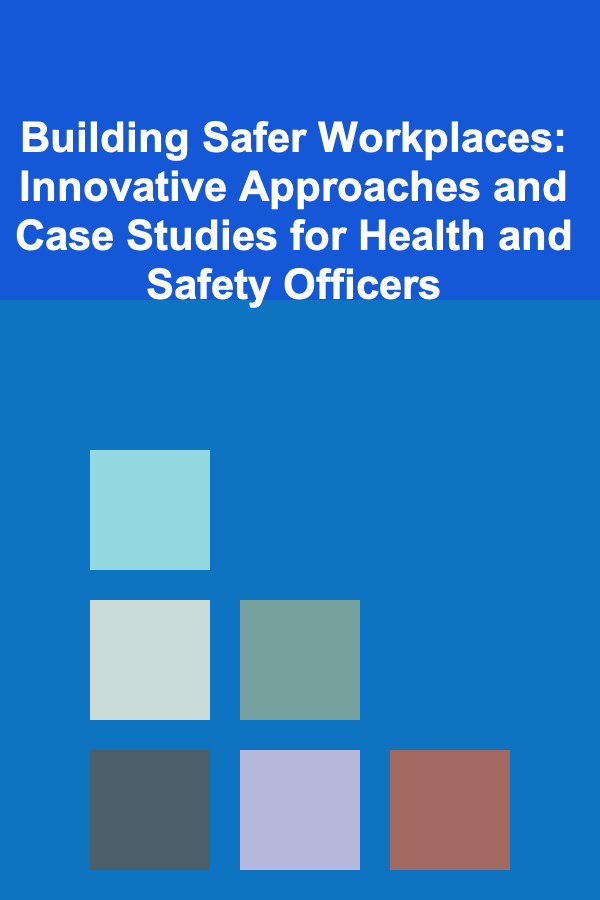
Building Stronger Healthcare Teams: A Practical Handbook for Healthcare Consultants
ebook include PDF & Audio bundle (Micro Guide)
$12.99$9.99
Limited Time Offer! Order within the next:

In today's healthcare environment, building strong, cohesive teams is more critical than ever. Healthcare organizations face complex challenges, from rising patient expectations to ever-evolving regulations, and the key to overcoming these hurdles often lies in the strength of the teams behind the services. As healthcare consultants, it's our job to guide healthcare organizations in creating and nurturing teams that can not only meet these challenges but also excel.
This practical handbook aims to provide healthcare consultants with actionable strategies and insights to help their clients build stronger, more effective healthcare teams. From fostering collaboration to managing change, the principles outlined in this guide are designed to equip you with the tools you need to drive meaningful, long-term improvements in healthcare team dynamics.
Establishing a Clear Vision and Purpose
At the core of every successful healthcare team is a clear vision and purpose. Teams that understand their role within the organization and the broader healthcare ecosystem are more likely to work cohesively and feel engaged in their work. Without clarity, members may lack direction, leading to inefficiency and dissatisfaction.
Actionable Strategy:
- Define Team Goals: Work with healthcare leaders to establish clear, measurable goals for the team. Whether it's improving patient outcomes, enhancing operational efficiency, or reducing readmission rates, the goals should be specific and achievable. These goals should be communicated clearly to all team members.
- Align Purpose with Organizational Values: Ensure the team's vision aligns with the overall mission and values of the healthcare organization. This alignment helps team members feel they are contributing to something meaningful, which in turn boosts motivation and engagement.
- Communicate the Vision Regularly: Make sure that the vision and purpose are communicated frequently and consistently. Use team meetings, newsletters, and other communication channels to remind the team of their shared goals and the impact of their work.
Emphasizing Collaboration and Interdisciplinary Teamwork
Healthcare is an inherently interdisciplinary field, and no single professional can address all the needs of a patient on their own. A successful healthcare team is built on collaboration, where each team member's skills and expertise are valued, and they work together toward a common goal.
Actionable Strategy:
- Create Collaborative Platforms: Encourage the use of collaborative tools like shared patient management systems, communication platforms (e.g., Slack, Microsoft Teams), and collaborative workspaces where team members can easily share insights, updates, and feedback.
- Foster Cross-Disciplinary Understanding: Arrange regular interdisciplinary meetings or workshops where professionals from various departments (nurses, doctors, pharmacists, social workers, etc.) can share their perspectives. This will help everyone better understand the roles and contributions of other team members.
- Encourage Open Communication: Build a culture of transparency and open communication. Ensure team members feel safe to express their ideas, concerns, and suggestions. Regular team check-ins or roundtable discussions can help break down silos and improve collaboration.
Developing Strong Leadership Skills
Leadership within healthcare teams doesn't only come from the top. While healthcare managers and senior leaders play crucial roles, effective leadership also needs to be nurtured at every level of the team. Team members who feel empowered to lead in their area of expertise contribute more effectively to the overall team dynamic.
Actionable Strategy:
- Develop Leadership at All Levels: Identify potential leaders at all levels of the healthcare team, from junior nurses to senior specialists. Offer leadership training, mentorship opportunities, and decision-making responsibilities to help them grow into leadership roles.
- Foster Emotional Intelligence: Strong leadership isn't just about technical skills. Emotional intelligence (EQ) is a key component of successful leadership, particularly in the high-pressure healthcare environment. Equip team leaders with the tools to understand their team members' emotions, manage stress, and resolve conflicts in a constructive manner.
- Lead by Example: As a consultant, emphasize the importance of leaders modeling the behaviors they wish to see in their teams. This includes demonstrating respect, accountability, and commitment to patient care. When leaders show they are committed to the team's success, it fosters trust and loyalty.
Addressing Conflicts and Building Team Cohesion
Conflicts are inevitable in any team, especially in high-stress environments like healthcare. However, it's how these conflicts are managed that determines whether they negatively impact team morale and patient care. Building a cohesive team requires addressing conflicts quickly and effectively and fostering an environment where disagreements can be resolved constructively.
Actionable Strategy:
- Implement Conflict Resolution Training: Provide training in conflict management for all team members, particularly for those in leadership positions. This could include negotiation skills, active listening techniques, and ways to approach sensitive topics with respect and professionalism.
- Encourage Constructive Feedback: Create a feedback-rich environment where team members can give and receive feedback in a constructive manner. Regular feedback sessions (both peer-to-peer and manager-to-team) can help prevent issues from escalating.
- Create a Team Charter: A team charter is a formalized agreement between team members on how they will interact, make decisions, and address conflicts. Having clear guidelines for team behavior can significantly reduce misunderstandings and foster a more positive, productive work environment.
Supporting Continuous Learning and Development
Healthcare is an ever-evolving field, and a team that doesn't continue to grow and develop risks falling behind. A strong healthcare team is one that values ongoing learning, whether it's through formal training, certifications, or peer-to-peer knowledge sharing.
Actionable Strategy:
- Provide Ongoing Education Opportunities: Ensure that team members have access to continuing education programs, conferences, workshops, and other learning opportunities. Keep them updated on the latest clinical practices, healthcare technologies, and regulatory changes.
- Encourage Peer Mentorship: Pair experienced team members with less experienced ones in a mentorship arrangement. Peer mentorship can be particularly beneficial in healthcare settings, where on-the-job learning is vital. It also helps foster a sense of camaraderie within the team.
- Support Research and Innovation: Encourage teams to engage in clinical research and innovative practices. A culture of innovation not only improves patient care but also helps team members feel more connected to the organization's long-term goals.
Prioritizing Team Well-being
The demands of healthcare work can take a toll on the physical and emotional well-being of team members. Burnout, stress, and fatigue are widespread in the healthcare industry, and these factors can directly affect both team performance and patient outcomes. Ensuring team well-being is essential to building a sustainable and effective healthcare team.
Actionable Strategy:
- Implement Mental Health Resources: Provide access to counseling services, stress management programs, and mental health resources for all team members. Destigmatizing mental health support and encouraging its use can help prevent burnout and improve overall well-being.
- Foster Work-Life Balance: Advocate for scheduling flexibility, reasonable work hours, and adequate time off for team members. A balanced team is more productive, engaged, and satisfied with their work.
- Create a Positive Work Environment: Pay attention to the physical environment as well. Ensure that the workplace is well-equipped, comfortable, and conducive to teamwork. Small adjustments like better lighting, ergonomic furniture, or collaborative spaces can have a significant impact on team morale.
Recognizing and Rewarding Contributions
Recognition is one of the most powerful tools for maintaining high morale and motivation in a healthcare team. Recognizing the hard work and dedication of team members can inspire them to continue performing at their best and contribute to a positive organizational culture.
Actionable Strategy:
- Celebrate Achievements: Regularly recognize both individual and team accomplishments, whether it's through formal awards, shout-outs in team meetings, or informal celebrations. Public acknowledgment helps reinforce positive behaviors and contributions.
- Offer Career Advancement Opportunities: Show team members that their hard work leads to growth by offering opportunities for promotions, additional responsibilities, or professional development. Career progression is a key motivator for long-term retention.
- Personalized Recognition: Understand what drives each individual on the team. Some may appreciate public recognition, while others may prefer a private thank you or a small token of appreciation. Tailoring recognition to individual preferences can make it more meaningful.
Conclusion
Building stronger healthcare teams requires a multifaceted approach that emphasizes collaboration, leadership, continuous learning, and well-being. As healthcare consultants, we have a unique opportunity to guide healthcare organizations in creating environments that foster teamwork, enhance patient care, and improve organizational efficiency.
By implementing the strategies outlined in this handbook, healthcare consultants can help their clients build teams that not only meet the challenges of today's healthcare landscape but also thrive in it. The result will be stronger, more resilient healthcare teams capable of delivering exceptional care and achieving outstanding results.

Building Safer Workplaces: Innovative Approaches and Case Studies for Health and Safety Officers
Read More
How to Build a Lasting Relationship with Trusted Pet Carers
Read More
How to Create a Storage-Friendly Laundry Room
Read More
How to Organize Your Car's Glove Compartment Effectively
Read More
How to Set Up a Grooming Station for Men's Products
Read More
How to Use Smart Locks to Improve Home Security
Read MoreOther Products

Building Safer Workplaces: Innovative Approaches and Case Studies for Health and Safety Officers
Read More
How to Build a Lasting Relationship with Trusted Pet Carers
Read More
How to Create a Storage-Friendly Laundry Room
Read More
How to Organize Your Car's Glove Compartment Effectively
Read More
How to Set Up a Grooming Station for Men's Products
Read More